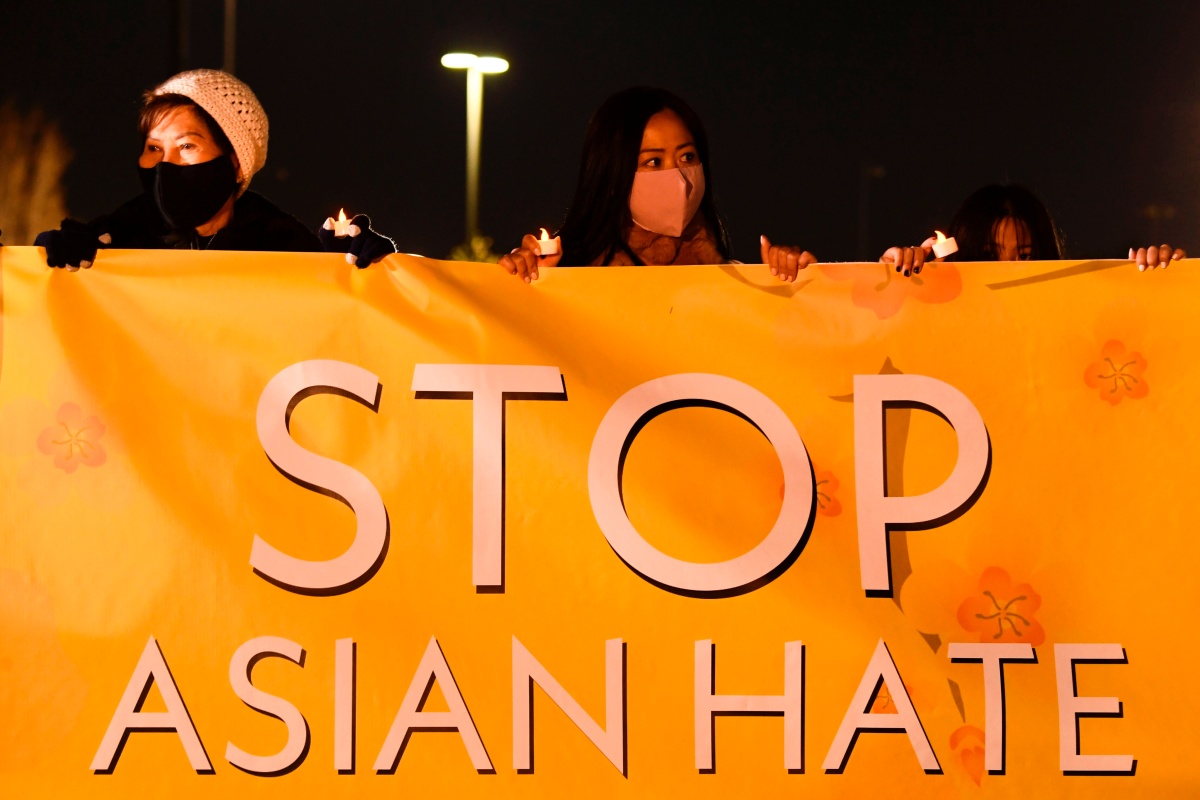Things We Saw Today: The Asian American Journalists Association’s Guidelines on Covering and Discussing Atlanta Hate Crime Shootings

After the horrific hate crime in Atlanta that saw eight people murdered, where six of the victims were identified as Asian and seven were women, it has been more important than ever to get the language right. The Asian American Journalists Association has shared some guidelines, and I wanted to share them here because listening to Asian voices right now is what is the most important thing.
As we go about discussing this hate crime, here are things they say to keep in mind:
The Asian American Journalists Association (AAJA) urges newsrooms to:
Take caution with language in news coverage that could fuel the hypersexualization of Asian women, which has been linked to violence and discrimination.
In describing the businesses affected by the shootings, newsrooms should avoid terminology and connotations of prostitution or sexualization. We recommend they be described as “spas,” “businesses,” or by their proper names: Young’s Asian Massage Parlor, Aromatherapy Spa and Gold Spa.
Provide context. We urge newsrooms to cover the shootings in the context of the current rise in attacks on Asian Americans. These shootings have come during a time of increasing attacks on the AAPI community, and heightened fear among AAPI communities across the country.
Understand anti-Asian racism and invisibility. Racism against AAPIs is highly nuanced, complex, and has remained historically invisible, and includes a long history of hypersexualization of Asian women that is rooted in Westernized and colonial perceptions of Asia.
This is inextricably linked to harassment and sexualized violence against Asian women. Women of Asian descent have reported 2.3 times more incidents of violence than AAPI men, according to a new Stop AAPI Hate report of nearly 3,800 hate incidents reported since March 2020.
Diversify your sources by interviewing and quoting AAPI experts. AAJA’s speakers bureau, AAJA Studio, includes AAPI researchers, experts and thought leaders with expertise in equal rights, hate crimes, AAPI history, racial justice and community-building work, racial profiling and discrimination.
A local coalition of AAPI civil rights, advocacy, and direct service organizations have compiled a list of AAPI community contacts for media.AAJA Studio is not an exhaustive list of experts, and we encourage reaching out to AAPI studies professors and scholars as well.
When more information emerges about the victims’ identities, center their stories and those within the community. Please consult members of the AAPI community to ensure accurate spelling and pronunciation of Asian names.
Empower and support your AAPI journalists and colleagues. Newsrooms must provide AAPI journalists with the necessary mental wellness support as our community faces increased anti-Asian violence and sentiment. AAPI journalists are underrepresented in newsrooms across the country, especially in leadership positions. AAJA has compiled a list of mental health resources for journalists experiencing grief and trauma.
AAJA stands with our AAPI journalists, who have been subject to violence and discrimination over the past year and as anti-Asian incidents have risen during the coronavirus pandemic. Many of our journalists are pushing for — many times, quietly and without recognition — increased coverage of AAPI experiences. Many are experiencing compounding trauma while covering the violence. We commend their dedication and resilience.This is a developing story, and AAJA will update our guidance as necessary.
Stop Asian Hate.
(via AAJA, image: PATRICK T. FALLON/AFP via Getty Images)
- President Joe Biden said Gov. Andrew Cuomo should resign if the several sexual misconduct allegations against him are confirmed by an investigation. (via HuffPo)
- Lil’ Kim showed nothing but love to Beyoncé and Megan Thee Stallion as they won big at the Grammys (via Billboard).
-
the incredible john wick energy of these hailee steinfeld hawkeye set photos!! pic.twitter.com/eyJjqqIABF
— Kay Taylor Rea (@kaytaylorrea) March 17, 2021
- Multiple sources have accused Sharon Osbourne of making racist and offensive remarks while she’s been on The Talk. (via EW)
- A Japanese court ruled on Wednesday that the government’s ban on gay marriage is unconstitutional! (via NPR)
-
Yaaaayyyyyyy WE MADE FOX NEWS GUYS !!! Wap wap wap https://t.co/g7AX947RMb
— iamcardib (@iamcardib) March 16, 2021
Want more stories like this? Become a subscriber and support the site!
—The Mary Sue has a strict comment policy that forbids, but is not limited to, personal insults toward anyone, hate speech, and trolling.—
Have a tip we should know? tips@themarysue.com